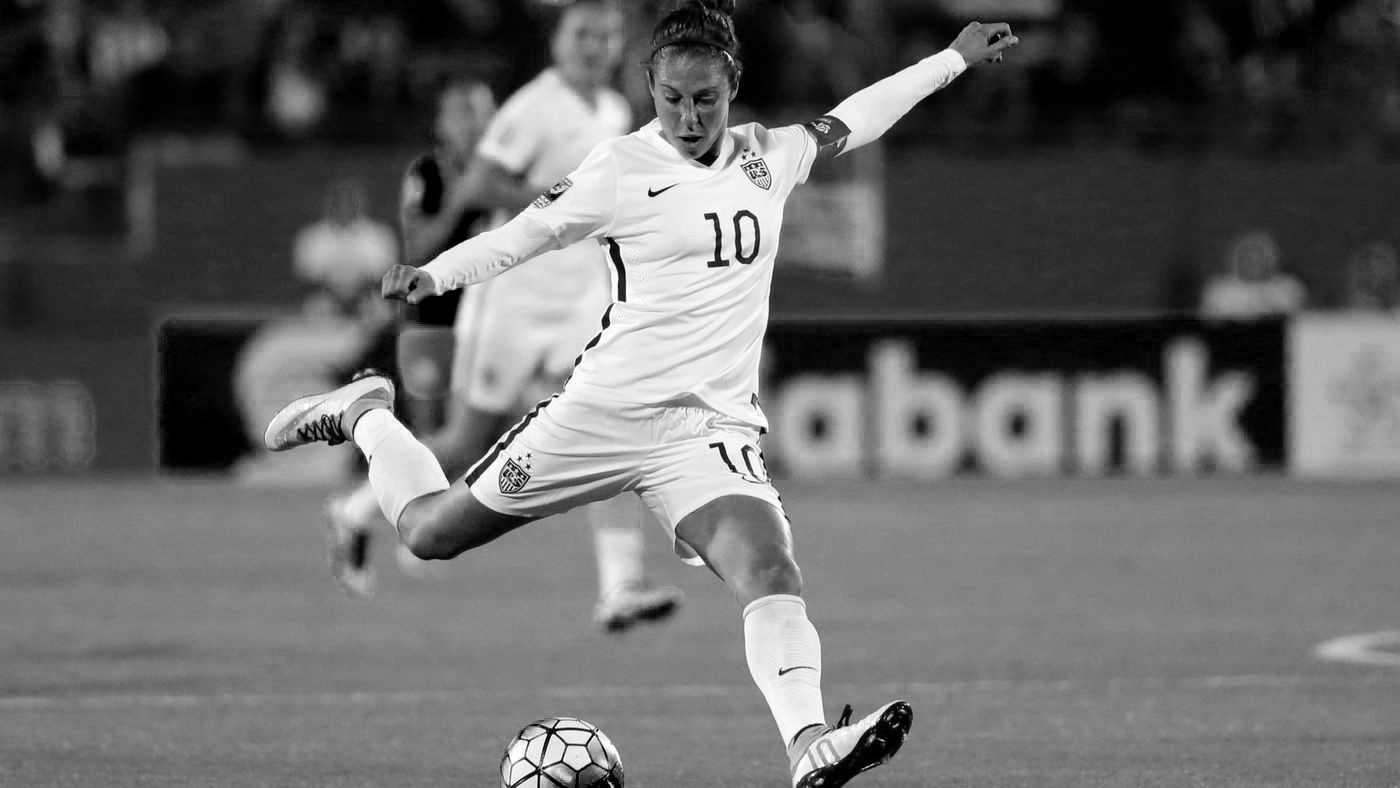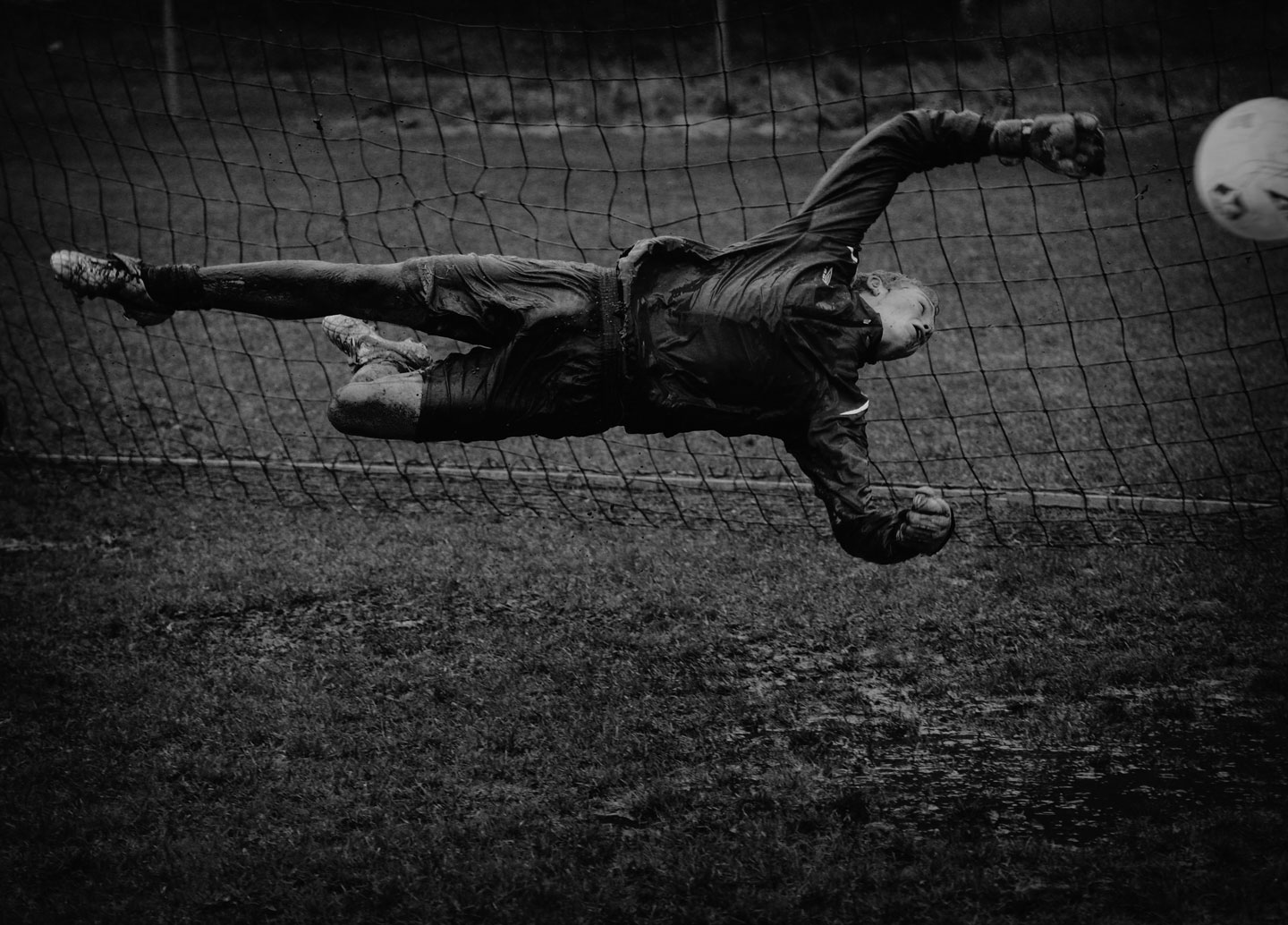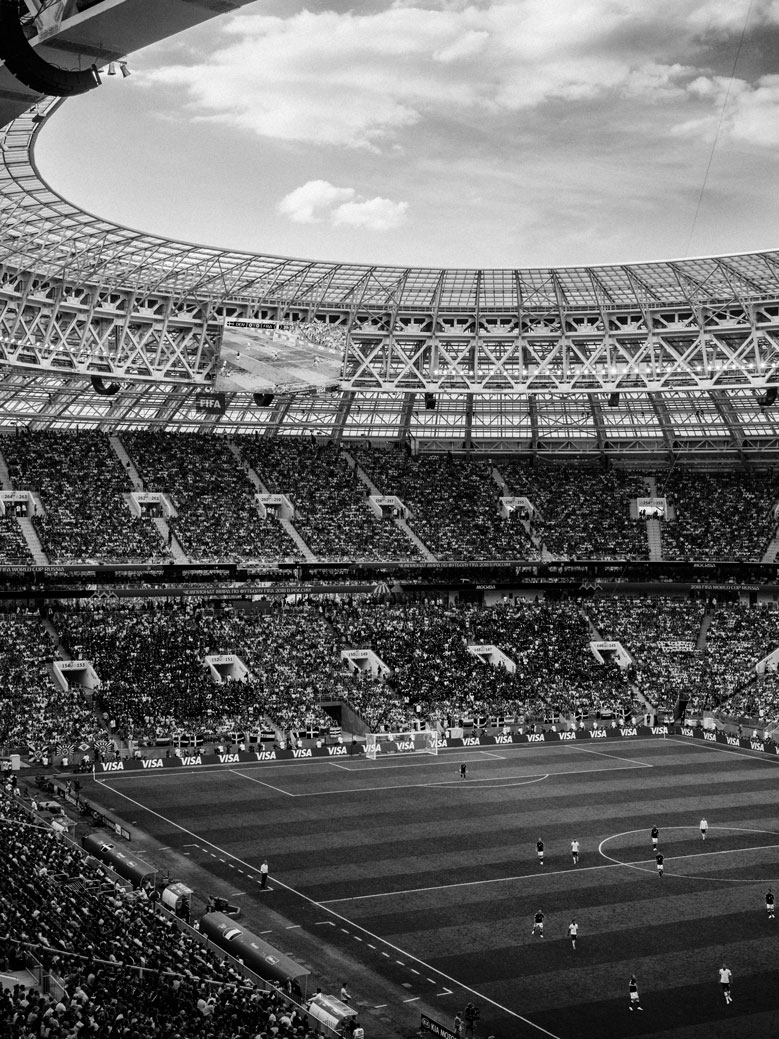The 2015 Women’s World Cup soccer Final was historical for many reasons: USA’s Carli Lloyd netted the fastest hat trick (three goals) in Women’s World Cup history in the first 16 minutes of play, the USA became the only country to win three Women’s World Cups and the country to score the most goals (five) in a Women’s World Cup Final.
Carli Lloyd became a media darling, a commercial success and the role model of millions of young female aspiring soccer players around the world. Her performance had the most skeptical Americans raving about soccer and our women’s team. and especially about Carli Lloyd.

But there is an interesting version to Carli’s heroics and skyrocket to superstardom… it probably should never have happened.
Four years earlier, in the 2011 World Cup final on the world’s largest soccer stage, Carli Lloyd missed a critical penalty kick against Japan — a miss that she calls “the toughest moment of my career” — that ultimately cost the USA and allowed Japan to win the 2011 World Cup.
And in the semifinals only days before Lloyd’s four goals and USA’s routeof Japan in 2015, Germany’s Celia Sasic missed a penalty kick against the United States team, a miss that would swing the momentum of the game away from Germany towards the USA team and would ultimately result in an USAvictory.
What made Sasic’s miss so shocking is that Germany traditionally doesn’t miss penalty kicks. That’s not arrogance or myth, but essentially one of international soccer’s unwritten rules. Germany’s men’s team at that point had never lost a penalty-kicksshootout in a World Cup. Neither had its women. In fact, in the 2015 quarterfinals against France, the German women used five perfect strikes plus one save to earn the right to face the USA.
It seems that penalty kicks are a big deal.
What exactly is a penalty kick? What makes them so important, so critical? And seemingly so difficult to make?
Nearly 75 percent of penalty kicks at the elite level are successful.
The goal is only 12 yards away. It stands 8 feet high. It is 8 yards wide from side post to side post. A penalty kick cannot be defended by other defenders. It’s just you and the goalie, standing 12 yards away, trying to guess where you will kick the ball, prepared to use any part of their body to stop your kick from going through.
The goalkeeper stares you down. Goalies have been taught to intimidate you, to get in your head (some credit USA’s goalie Hope Solo’s intimidation tactics for Germany’s Sasic’s miss in 2015). Once you kick the ball, it will streak toward the goalie at upwards of 80 miles per hour. The goalie cannot afford to wait and see where you kick the ball, so the goalie will guess and lunge in that direction.

If the keeper guesses wrong, your odds rise to about 90 percent.
A torrent of thoughts are racing through your mind as the kicker:
- Should I kick toward a corner of the goal hard enough that the keeper cannot make the save even if they guess correctly?
- Do I shoot upper or lower corner?
- If I slightly mis-kick a corner shot, I’ll miss the goal completely…
- Should I ease up a bit, or aim slightly away from the corner…?
- Should I shoot to the left corner or the right corner?
If you are a right-footed kicker, as most players are, going left is considered your strongside, meaning more power and accuracy. Unfortunately the keeper knows this too.
That’s why keepers jump toward the kicker’s left corner 57% of the time, and to the right only 41% of the time.
So there you stand— the crowd in outright bedlam, your heart rate nearing a danger zone, options swirling like a hurricane through your mind— preparing to take this life- changing kick. The eyes of the world are upon you, and the hopes and prayers of your nation. If the ball goes in, your name will revered like the afore mentioned Carli Lloyd. And if you fail…
As we’ve already discussed, the chance of you making the shot is about 75%, which isn’t bad. But what if you could elevate that percentage? Is there be a better way to think about your penalty kick? You know the keeper is choosing between jumping right or left.
What if you do the seemingly most foolish thing imaginable and kick toward the dead center of the goal?
Before you throw your hands up in disbelief, let’s review the data:
- Keepers lunge left 57% of the time
- Keepers lunge right 41% of the time
That means that keepers are lunging one way or the other 98% of the time.
Which means that keepers never move at all only 2% of the time
Which means a kick right down the center, as risky as it may appear, is seven percentage points more likely to succeed than a kick to the corner.
While a penalty kick aimed at the center of the goal is significantly more likely to succeed, only 17% of kicks are aimed there. Why?
One huge reason is that kicking the ball straight at the goalkeeper just seems downright stupid. As well, kicking the ball dead center destroys your greatest asset as the penalty kicker: mystery. The keeper doesn’t know where you will aim. If kickers did the same thing every time, their success rate would tank. But there is a third reason that most soccer players would never admit as to why more kickers don’t aim center, especially in a high-stakes setting like the World Cup.
They are paralyzed by the fear of shame.
If the goalkeeper doesn’t dive — if for some reason the goalkeeper stays at home and you kick the ball straight into the keeper’s gut, if the keeper’s save brings victory to their country and they never even had to budge —you will have to live with shame.
By the way, the World Cup is a really big deal. Over a billion people watch the World Cup. By comparison, roughly 114.4 million people watched the 2016 Super Bowl. And most of the stadiums that host the World Cup seat over 100,000 fans.

The crowd noise rises to an unintelligible roar as you place the ball on the chalked penalty mark.
So you default to the traditional route, a kick toward a corner. If the keeper does guess correctly and stops the ball, at least you made a valiant effort even if it was bested by a more valiant one. You won’t be a hero, but you wont have to enter a witness protection program either.
But if you really want to win the game for your nation even though it will mean you risk looking personally foolish— you will kick toward the center.
Sometimes in life, going straight up the middle is the boldest move of all.
For most people, the two most powerful experiences in life are achievingand connecting. As a high school student, these two categories grab our attention and command our energies.
- Making the grades…
- Making the honor roll…
- Making the college of your dreams a reality…
- Making the team…
- Making friends…
- Making out…
Entering into college life and/or the work force only amps up these two experiences several thousand notches. Your life journey from this point on will be centered on these two experiences. The game just gets really serious.
Connectinghas to do with our relational world: falling in love, forming great friendships, or receiving words of deep affection and affirmation from our parents. Achievinghas to do with our accomplishments: winning games, pursuing career success, or realizing a difficult goal.
Our society is increasingly devoted to, obsessed with, and enslaved by achieving and increasingly bankrupt and impoverished when it comes to connecting. Achieving is not a bad thing – when it is done in the right way and for the right reasons. But achieving is no substitute for connecting. In fact, if achievement is to be done right, it must honor and include community, or connecting.
The only real significant achievements are those that enrich the life of people: of community. Have you ever known anyone who failed at relationships – who was isolated, lonely, unconnected, had no deep friendships – yet had a meaningful and joy-filled life? Conversely, have you ever known anyone who succeeded at relationships – who cultivated great friendships, who was devoted to their family, who mastered the art of giving and receiving – yet had a bad life?
No matter how high your GPA, how many state championships you win, how many followers you have on Instagram, in the end what everybody discovers is that what matters most is other people.
Not Good
In the story of creation, a constant phrase keeps recurring: “And God said…and it was so…and God saw that it was good.” The writer is emphasizing that everything that exists is the effortless activity of an unimaginably powerful God, and all of it is a delight This could be considered the song of Creation…
“And God said…and it was so…and God saw that it was good.”
Until the final act. Then the song has a train wreck.
God creates man in His own image. God looks at this man, who bears his likeness, and he says, “Not good.” He wasn’t commenting on what man looked like. He wasn’t implying that He likes women better. The implication is that it is not good for us to journey through life alone. This is a radical comment about the fundamental importance of human relationships. What is striking about this comment is that the Fall hasn’t occurred yet. There is no sin, no disobedience, nothing to mar the relationship between God and man. He is known and loved by omniscient, love-filled Creator. Yet the word God uses to describe him is “alone.” And God says that aloneness is “not good.”
You are a part of a world that values achievement far beyond connection. The older that you get, with the freedom you will gain, you will be tempted to abandon a lot of things:
- You will get your driver’s license, which means you become independently mobile, so church may become negotiable…
- You won’t have to go to class in college…
- You won’t have to be in at a certain time after graduation…
- You will be free to do as you choose…
If you choose to abandon connection with others, you are choosing to abandon the heart of God. Many have long held the idea that it is the perils of college life that cause students who follow Jesus to fall apart when they hit campus. Now, more than ever, it is increasingly evident that alack of connectionis the major player.
To live in and contribute to God’s dream of connection with others is the reason you were born. It is what you were created for. The magnificence of your life will be determined by how you balance achievement and connection. Neglect this, and it doesn’t matter what else you do, you die a failure.
There are two huge implications if connection is that critical:
Human beings who give themselves to relational greatness are the human beings who lead magnificent lives. It is not the student that will gather all the trophies…that will bear the greatest title…that accomplishes every dream that lives a life of greatness. It is the student that will channel every achievement and ambition towards God’s great end: His name and fame being made great.
- A doctor…
- A lawyer…
- A mother…
- A father…
- A teacher…
- A coach…
- An actor…
- A musician…
- A rocket scientist…
- An athlete…
- A minister…
- A Wall Street investor…
- A banker…
People are ultimately and eternally what matters. “To love another person is to see the face of God.” (Les Miserable)
With great freedom comes great responsibility.Grace is not cheap, and freedom is not free. Its cost is responsibility. How you manage your freedom will determine the magnificence of your life. Do not make the mistake of thinking that freedom carries no burden. Your school, your peers, your life is proof that the burden is huge. The Cross is a constant reminder of the cost and responsibility of freedom. The saddest commentary one could articulate about you is that you were a good person.
- You don’t smoke…
- You don’t drink…
- You don’t curse…
- You didn’t get pregnant or get anyone pregnant…
God has created you to be great, not simply good. It is not living that is important, but living rightly.
Great ambition and achievement without connection iswithout significance.
It is totally cool to enter life after high school with an undecided or undeclared major.
It is totally un-cool to have an undecided or undeclared life.
I ask you: What will your contribution be?
How will you be remembered?
